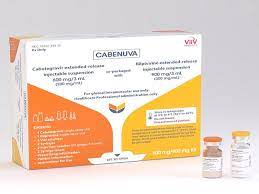Pfizer Inc. (NYSE: PFE), a stalwart in the healthcare sector, is under the investor spotlight with a notable potential upside of 36.24% based on analyst ratings. With its extensive portfolio of biopharmaceutical products and strong historical presence, Pfizer continues to be a pivotal player in the drug manufacturing industry, providing a myriad of medicines and vaccines that cater to a wide range of therapeutic areas.
As of the latest trading session, Pfizer’s stock is priced at $22.14, sitting near the lower end of its 52-week range of $21.59 to $31.39. This positioning may intrigue value investors looking for entry points in blue-chip stocks with robust dividends. The company’s hefty market cap of $125.57 billion underscores its prominence and stability in the market, making it a significant contender for those seeking long-term investment opportunities in the healthcare sector.
Looking at Pfizer’s valuation metrics, the company’s Forward P/E ratio of 7.28 suggests a potential undervaluation relative to earnings expectations, particularly when compared to industry standards. This metric indicates that investors might be paying a lower price for future earnings, making Pfizer an attractive option for those focused on growth at a reasonable price. However, the absence of trailing P/E and PEG ratios suggests a need for investors to dig deeper into Pfizer’s earnings consistency and future growth projections.
Pfizer’s revenue growth stands at an impressive 21.90%, reflecting its ability to expand its market reach and enhance its product offerings, especially in key areas like COVID-19 treatments and vaccines. While the company’s net income is not disclosed in the current data set, the earnings per share (EPS) of $1.41 and a return on equity (ROE) of 9.06% highlight its profitability and efficient use of shareholder capital.
Investors looking for income-generating assets will find Pfizer’s dividend yield of 7.77% particularly appealing. This yield, one of the highest in the pharmaceutical sector, is supported by a payout ratio of 119.15%, indicating that Pfizer returns more to its shareholders than its net earnings. While this generous payout is attractive, it also signals potential sustainability concerns, urging investors to monitor future earnings and cash flow closely.
Analyst ratings for Pfizer reflect a mixed sentiment with 8 buy ratings, 14 hold ratings, and 1 sell rating. The target price range of $23.00 to $42.00 suggests a wide variance in expectations, but the average target price of $30.16 provides a glimpse into the consensus on the stock’s potential. This disparity highlights the importance of considering individual risk tolerance and investment strategy when evaluating Pfizer’s stock.
Technically, Pfizer’s stock has been trading below its 50-day and 200-day moving averages, which are currently at $25.11 and $27.20, respectively. This technical setup could be interpreted as a bearish signal in the short term, although the Relative Strength Index (RSI) of 66.79 indicates that the stock is nearing overbought levels, suggesting potential volatility ahead.
Pfizer’s extensive collaborations with industry giants like Bristol-Myers Squibb and BioNTech SE, along with its innovative pipeline in areas such as mRNA technologies, continue to bolster its strategic growth prospects. As Pfizer navigates the challenges of the competitive healthcare landscape, its focus on strategic partnerships and product diversification remains key to sustaining its market leadership.
Investors should consider Pfizer’s strong dividends, potential upside, and strategic initiatives when evaluating its stock for portfolio inclusion. The combination of growth opportunities and substantial income potential presents a compelling case for Pfizer, particularly for those with a long-term investment horizon in the healthcare sector.








































